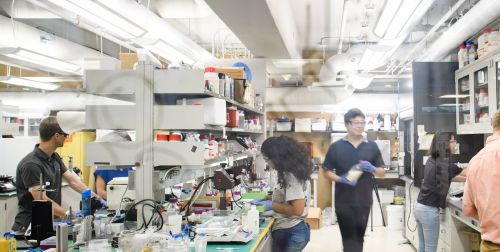
The researchers in Princeton’s Complex Fluids laboratory are sometimes inspired by a cup of coffee or a permanent marker.
Such everyday items may seem like odd subjects of inquiry in a lab known for its cutting-edge research, but in fact the coffee — a latte actually — acts as a model system to study pattern formation in liquids, which could lead to applications in food science, and the permanent markers may suggest ways to transfer patterns of micro-fabricated electronics from one surface to another.
These seemingly unconnected experiments are tied together by the study of fluids and how they move and change in space and over time. At the head of the lab is Howard Stone, a professor in the School of Engineering and Applied Science, whose mentorship of graduate students and postdoctoral researchers has led to a multitude of papers on topics that have the potential to address societal problems, from coping with climate change to purifying water using the technology that adds fizz to soda.
“I encourage the members of my lab to do things that excite them, things they’re very curious about,” said Stone, Princeton’s Donald R. Dixon ’69 and Elizabeth W. Dixon Professor and chair of the Department of Mechanical and Aerospace Engineering. “It is a little different than how other groups sometimes run, and in part that’s because I’m not focused on trying to solve only one problem. Instead I am serious about seeking new understanding as well as potential applications.”